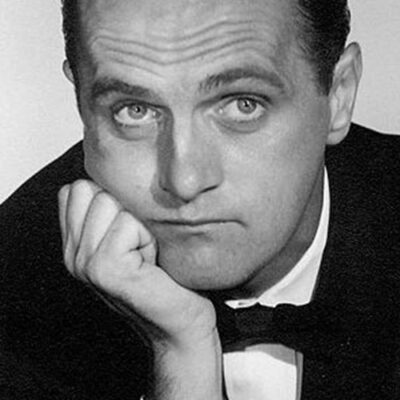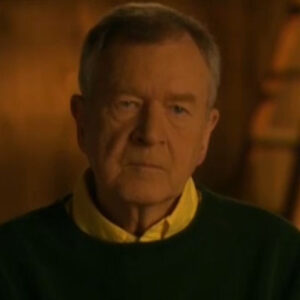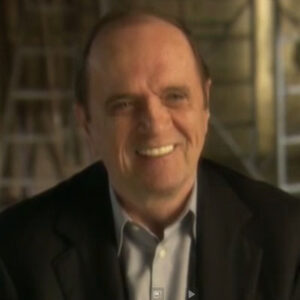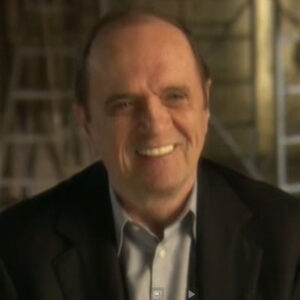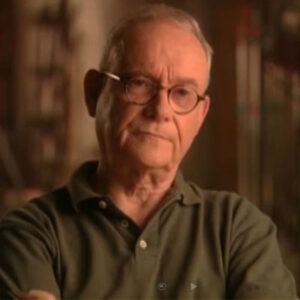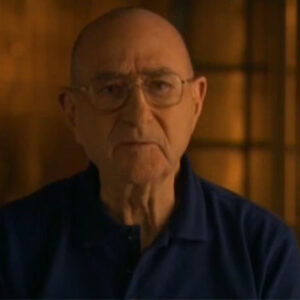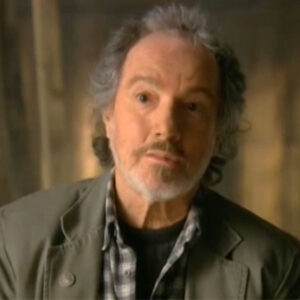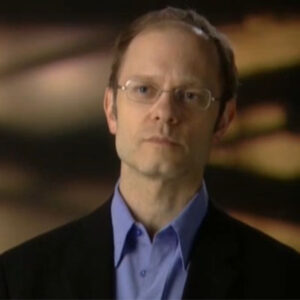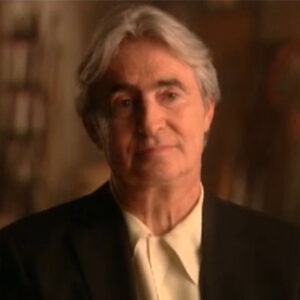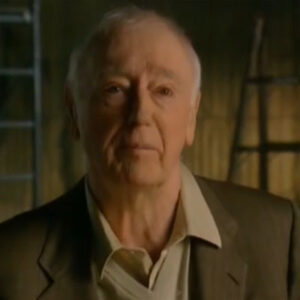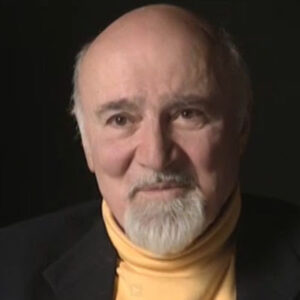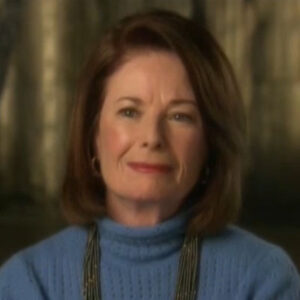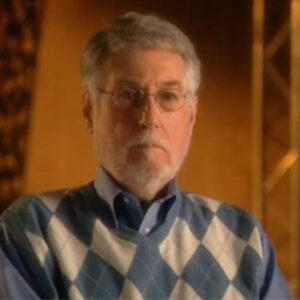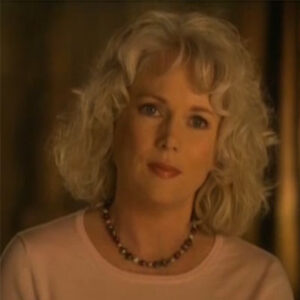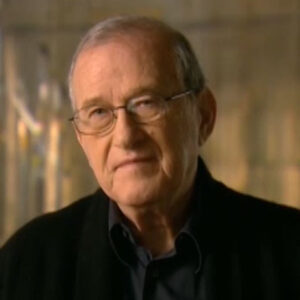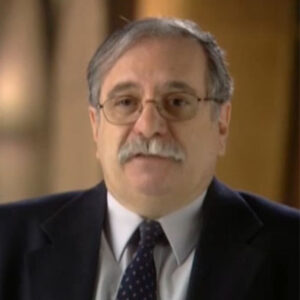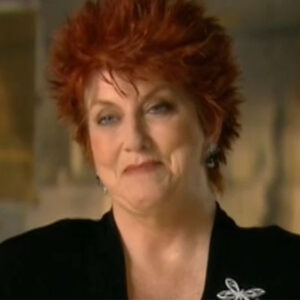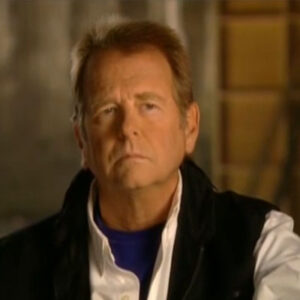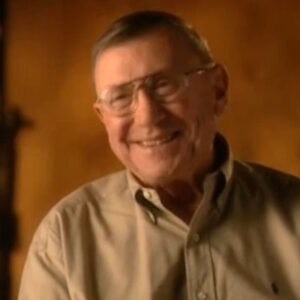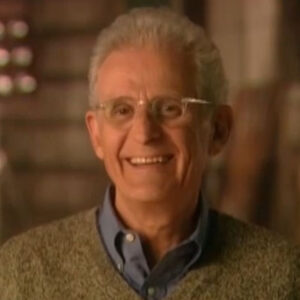Don Rickles: OK.
Interviewer: So where were you when you first? Were you a fan of Bob’s albums or anything before you met him?
Don Rickles: No. I wasn’t a fan of Blob’s at all. In fact, Bob and I had two different lives, and if it wasn’t for his wife and my wife, we probably wouldn’t be sitting here today telling his wonderful, charming he is. But we go back a long time and I’m delighted to be his friend. But. We we wouldn’t we would never, never intertwined as far as comedy was concerned before we met.
Interviewer: Did you how did you meet?
Don Rickles: Well, he came up to Las Vegas with his wife. He must have told the story, but sitting in the coffee shop and she sat down with a sweet guy. He is Bobby. I’m a love dog and blah, blah, blah. And Bob said, All right. Really? When I want to say, really? And he said, Really? He says, I don’t do that. I don’t stand like that. That’s just for the comedy. Trust me. Anyway, so he was telling me I had and the show started and I was working in the lounge and those days are over a bar, and I came up and I called his wife a hooker. I called some names to him. And so it wasn’t so someone and he couldn’t believe it. I mean, later he said, let me ask you let me I’m asking is Annie, Annie, Annie, Annie. I don’t get away doing that. And I told him, you know, it’s none of his business. But that’s pretty much how we became friends. But the basic thing is, when you say friends, is that which values are the same? Comedy is different, but it’s socially. We laugh at the same stuff and enjoy each other socially. But on the stage, it’s always been different. We’ve worked together a few times and it has shown that we did a show together and it worked fine. But it’s not a thing that because it’s apples and oranges.
Interviewer: How would you describe his stage persona?
Don Rickles: His third stage now he’s a very he’s a you know, he’s a brain comic, you know. He tells stories about life and does it very well and he creates things and they become little vignettes. And part of his performance, which is great. And that’s pretty much what I can say about it,.
Interviewer: Was it was what he was doing when he was coming up so early 60s and stuff. Was that different then? How is it different from what other comedians were doing?
Don Rickles: Well, again, he was doing, you know, satirical humor about, you know, doing the telephone scene and safari and the airplane pilot. That was all like stuff. In fact, if you go to any place where he’s working, you say it’s a good 10 minutes of farmland. But I love doing this. You can imagine. Anyway, he he does these vignettes and they turned into big routines about the telephone and so forth, which, you know, which is a certain style that nobody can copy, which is kind of which gives him a great deal of greatness, which he is. There’s no question about that fact. I go to his house and he being Catholic instead of the pope, he dresses up and I go I kiss the ring and pretend he’s the pope. It’s a whole thing. Before we have dinner, I happen to be Passover. So one time I was there, he had some lights are on the table as a courtesy. He didn’t go to any Jews at that time. He thought we all were in the desert sand or something. He didn’t know.
Interviewer: Maybe it was was comedy sort of changing at that time, would you say?
Don Rickles: I always say people ask me about comedy. You know, funny is funny. You know, I I work all over the country as well as Bob does. And there you go. All of the certain places are more fun. Lovers Love Vegas is a great, great atmosphere. Fun Atlantic City casino atmospheres are always great when you go to the. Now they have these Indian reservations. You know, they got tired of attacking us, you know. Secondly, the hotels and so forth. So they sold their horses and now they opened up casinos. So we worked for them and they’ve been wonderful at casinos. And that’s pretty much how it works out. So. But they were all there to have a good time, especially I always emphasize, if gambling is around and you have a show and it makes it I think it makes it more exciting. Let’s put it that way.
Interviewer: Is playing Vegas different than other types?
Don Rickles: Well, I started the Vegas was forty six years ago and when I was there. Well, talk like, you know, will always hold us, you know, from the gunpowder. But we used to just have a good time in those days. It was all one couple of fellows that owned the place. Now it’s big corporate operations. But I caught a fish. And so it makes them a great deal of fun now.
Interviewer: Was it.
Don Rickles: It was fun then. Dont misunderstand. Those days, it was more personal, you could hang out. That’s like Bob and I and his wife and my wife. After shows, we we’d meet and have coffee and so forth.
Interviewer: Was it was Bob style kind of different, you think, for like a Vegas atmosphere where you had to be?
Don Rickles: Yeah, well, he was, but he was accepted because he’s that talented. But he he did that and he’s worked Vegas. He’s worked Atlantic City, his work is he’s done it all. I think his great success is the television camera loves him. And that’s that’s the key to us, is might be this great success that he’s had so many so many successful shows. You know, Bob Newhart show. Well I dont want to go down a list because when I go to his house, he reads it to me every night before we eat dinner. I’m nice about it, you know, annyoing but you have to act nice.
Interviewer: Why do you think that is? Why do you think he does so well on TV?
Don Rickles: Because he’s America. He’s he’s not Jewish. He’s got a tie and he’s not American. He’s not French. He is American. But we keep it quiet, you know, but he’s like he’s is a conglomerate of of everybody. And he reaches all kinds of families. And he has that kind of charm and everybody seems to love.
Interviewer: And I mean, do you think what is that part of why he’s been kind of timeless? You know, that he didn’t just have is just popular in the 60s with the albums. He seems to be just as popular today. Do you think that’s partially.
Don Rickles: Well, he’s older and it’s sort of like a mercy thing. Got to be nice when I get older as I. But his audience comes into shallow areas, so I like he gets some nice people and hits it. It’s what. It’s unique. It’s timeless. He is.
Interviewer: Is there much of a big difference between the Bob that’s on stage and the Bob that you know.
Don Rickles: Well on stag you know, he’s funny offstage. It’s like being a little subtle. Otherwise, there’s just no difference. When I say alone, you must understand when you’re with Bob on New Year’s Eve, you know. And that’s about it. With the horn and then it’s over. But we have good times together. I’m just being sort of humorous, I think, but we have great times together.
Interviewer: Does he make you laugh? Oh, certainly. He’s really is different. That way we both laugh at inside stuff that nobody else would ever dream that he would do. And he can be a real Nazi when he gets going with some of the stuff he does at dinner tables. We were just together, the four of us. And as we have great times.
Interviewer: He’s not quite as.
Don Rickles: No, no, no. But, you know, in front of people, he goes. Thank you so much.
Interviewer: It’s pretty rare, isn’t he? He went from having had no standup experience, really? And then suddenly had these huge albums that nobody’s ever really done. Quite that.
Don Rickles: No. No. And that was that was the kick off for him. You know, most of the time that I worked in smart places where the girls were not nude. They were beyond nude. They weren’t just floating in the air, you know, just a nude party. And I did the jokes while they were nude. But he didn’t work in those kind of places. He was always very sophisticated that evening. And he did his little cute little act.
Interviewer: So he kind of skipped all that.
Don Rickles: Yeah, he skipped over that because of his albums. And he just was very fortunate to catch on so fast. And then I really got him. I loved him.
Interviewer: Was there any kind of learning curve for him that you know about that he had to find? As you know, he didn’t have any experience.
Don Rickles: But if there was, I really don’t care. I got my own troubles by the fact that I’m doing this now a favor.
Interviewer: Do you guys ever talk comedy together or are we.
Don Rickles: Yeah, we talk about other people, but not too much. Surprisingly enough, we we. And the interesting thing is we’ve never talked about each other’s careers because mine has skyrocketed and there’s always been, you know, so lovely. But to be sincere about it, we we always found that our friendship has been so warm and good that we we never delve into too much into it unless it’s something that we. If he wins an award or if I do something, it’s that outstanding. But our friendship is more related on the wives than the two of us being friends in spirit.
Interviewer: He seems like so he comes off very low key, laid back like everything’s going to be. But does he care more about, you know, the work he does?
Don Rickles: Well, he’s a workaholic. He’ll say he isn’t. But he is. I mean, he does this. He does that. He does so many other things. And I’m amazed that he doesn’t want that. But he he’s quietly enjoys doing all that kind of work. I mean, that’s why we’re friends. Because I do a little bit and then lay on a couch.
Interviewer: And is it surprising that he’s been so successful as a comedian because, like you said, he’s so quiet as a person?
Don Rickles: Well, that’s the secret. You know, when the light goes on, his becomes the dial. It makes everybody laugh. You know, not everybody. Because what I’m in the audience. But he’s he’s he’s that way. It’s not that he’s completely two different people. Nobody’s nobody. Like, I’m now being sarcastic in many ways. But if the camera wasn’t on, I would I would leave. I think about that might be laugh. Forgive me, but, you know, he says he’s pretty much down to earth. Very down to earth.
Interviewer: And how would you like when you guys were in Vegas? It seems like how both of you managed to balance that with raising kids like anybody else.
Don Rickles: I mean, we’d go to work, do our job, and then go by the pool and play with the kids, although Bob doesn’t swim. You’ll have to see him in a bathing suits, like looking at a bottle of milk and juices that that white Irish beautiful skin. I mean, if the sun hits, really starts to fry an egg on air and you got a whole diner. But he’s he’s not out to Charlie and he’s not going to win the Olympics, although he does prefer to be a little bit of a jock, which is great golfer, which he tells me every day, and we’re used to playing to try to playing with you because I’m not going to look for the ball and that’s it. So that’s we get into subpena arguments about that. But who cares? I don’t play anymore.
Interviewer: So is his family.
Don Rickles: Oh, sure. That’s the whole thing. I mean, my family is family. We are two two guys. I can’t speak for everybody else, but we are your families that really get along. And it’s great. I I’m I’m I’ve been blessed to have him. And I hope you don’t see this when I say this. I’ve been blessed to have him and his wife and his family and our family to be as close as we’ve been over some 30 someone years.
Interviewer: And would he come and see your act in the. When you were performing in Vegas.
Don Rickles: Only if it was comped. Once there was a charge and they refused to come. So but if I get him, come, comes. Now, he hasn’t seen my performance that much. He has been there occasionally kills him because I get three standing ovations when he gets one guy. And that’s about it. So he doesn’t he. He can’t. But all sincerity or sincerely, sincerely sincerity, whenever he here, he has come to see me. And I’ve come to see you. Well, I don’t really get a chance to see each other, because when we’re working, we we come together and we want to get away from that a little bit. You know?
Interviewer: What what makes him laugh, like, what kind of things does he find funny, vicious things?
Don Rickles: Believe it or not, we do things and he does secure future with that, isn’t he? Well, he has a lot of that. He’s very funny at it. We were in Germany. We used to have some good times. I used to walk down the street and he was at that time, he thought I was sick. But it turns out he had a go like this and say, don’t, don’t, don’t do that. People will see my legs bother me. So I walk the dog doctor and I would sit at the terminals. So I’ll call you want to be executed. He’s going through a whole Nazi thing so nobody knows it. That’s the vicious part of Bob. It’s a vicious section. That’s that’s a bad word. It’s like fishing. It’s like it’s set.
Interviewer: But he thought it was kind of interesting because he said that he was sicker than you. But he never brought that on.
Don Rickles: No. No.
Interviewer: Why do you think that is.
Don Rickles: He was Afraid. Afraid somebody will hurt them. Why not? I don’t know. It’s like, you know, I get the feeling this isn’t an interview. I need a couch. I think I’m in a doctor’s office and I’ve been to a psychiatrist. But you would love I’m talking to. It’s wonderful. I think I’m getting better.
Interviewer: You were you guest starred on his show one time, what was a can you tell the part that you played?
Don Rickles: Oh, so long ago he was a pawn. I was Don Rickles and Bob Bowman. I always find it very difficult when you’re best friends to be able to go on. And a dramatic thing. You know, you can do it. We we only did a little a half hour. His little halfhour comedy thing that got him all kinds of awards, which I could never understand anyway. So he got all these awards. And when I was on his show, it it was nice. But we really you really feel funny about being with each other. That’s the so I felt on camera. So maybe someday before the guy, he gives us the hook and we go up there and we’ll do something dramatic together. I doubt it because he doesn’t like to work with greatness. Greatness scares him. That’s.
Interviewer: Did you watch those shows, Bob Newhart?
Don Rickles: Well, my wife insisted. I was watching nothing personal, but baby, I was watching CNN and MSNBC, all my favorite stations. PBS, I watched once there was there was a storm, and that was the only station thatwas on. So we watch that for a few minutes. Charlie Rose was sitting there taking a nap. That’s it.
Interviewer: What did you did? What did you like about those shows, did you think?
Don Rickles: I was fine. Sure. There’s a frenzy. You’re really you’re really rueful, regardless of what I have ever seen them do. I have to be honest. He did one picture of which will go into that was that was never a big win for him. But mostly everything he’s ever done, in my opinion, has always been successful. Does he get nervous about every actor gets nervous? Suddenly, Bob, you’re talking as if. He wasn’t the one that was elected the other day, you know. There was no smoke coming out of his chimney. You know what I’m saying.
Interviewer: Did you have any favorite routines?
Don Rickles: No, I’m not that insane. No, I don’t get them involved, all stuff like art so many times over the years. You know, I like a dick button who’s a dear man and a great comedian. He could do Bob’s act if he wanted to. He’s very good at that. But it seems it’s apples and oranges. What Bob does, I certainly couldn’t do. He certainly can’t do what I do, although he attempts it quietly. But I can’t do.
Interviewer: And when you’re traveling together,.
Don Rickles: Yes he carries the luggage. Yes, he does. Takes care of the luggage. Does the tipping. And I just go to my suite. He waits outside with Jimmy, his wife missing. Is he coming out? My wife says shortly. Just be patient. Some of them. What trips?
Interviewer: Does he interact with when people recognize?
Don Rickles: Oh, yeah. You say a lot about. We’ve made a pact that once in London. So let’s not talk to anybody. Let’s be pleasant. Just say because I have a good way of what we call kiselyov to say. Thank you so much. And I appreciate. No, I’m a gentleman. And Bob says, you know him. He extends himself a little more than I do and his way. So he said, let’s let you talk to people too many times. You talk too long. So you walk down the street and somebody says, almost know what day you are. Well, thank you very much. And again, you know, I saw your last show you some samples show. You were so good. Really? And how’s your family? And all of a sudden you’re living in our room. Join us for dinner. We’ve got a friend. He says that I make friends with Dennis, that I wave to some sailors, some Navy officers. And I made a big fuss, which they didn’t recognize him. That’s what. Steam them.
Interviewer: He was jealous.
Don Rickles: Yeah.
Interviewer: Do you think he’s had an impact on the field of comedy?
Don Rickles: Oh, sure, sure. Ellen DeGeneres. She gets up in the morning and that’s pretty much it. He said he’s somebody that a lot of people that that love comedy love him.
Interviewer: What do you think is the thing that sort of sets him apart.
Don Rickles: Being different in pretty much different than everybody else? So.
Interviewer: In what way?
Don Rickles: Well, yes, nobody nobody can tell a story about an airplane pilot. I could, but why should end his career. How much longer?
Interviewer: I’m sorry.
Don Rickles: If I answer four more questions about him, I’m going to go home exhausted and I want to read a book about him. No, you’re very sweet.
Interviewer: Let’s see. I was the last. I was going to ask.
Don Rickles: If I like his humor. As we started out now. I can’t stand it can’t stand. The man can’t stand doing this. But his people and his friends and his manager, Joe Bon Jovi. That’s it. That’s the that’s the new manager. The other one is the big storm. He’s the one. Oil is his guitar, you know, guitar. But it sounds funny. You know, I would say now. Well, what’s funny, you was a guitar. So they laugh. He can’t handle that. So Bon Jovi skyrocketed.
Interviewer: What do you think he’ll most be remembered for?
Don Rickles: A statue in Chicago? That’s about it. What else could he have? He’s got a statue. Who in his business as a statue? He has. Which is quite nice. A lot of pigeons go. There is the new hockshop. They leave a message. You gotta cheer up. That’s your problem. Yes. Right now, your sweetness.
Interviewer: So your families have your kids and your grandkids all grown up together.
Don Rickles: He kidnapped one of my grandchildren once. But we got it back. We can come up with the ransom. But he he brought the kid back. Now we see each other on Holli’s Christmas tree. We go to Bob’s house and look at the tree. And being Jewish, you know, I have a match like, you know, but we go through early Christmas songs. My favorite time. And we have the best time and I’m on Jewish holidays. He just drives his car and goes. And that’s why it throws a bucket of flowers into us. And that’s about it.
Interviewer: Is there anything we don’t know about Bob Newhart?
Don Rickles: If you don’t ask Tim Connolly, can we ask what these people are to that? Jack Ralina? That’s their life to talk about him as a Jew. When I come in, they’re going to make him a genius. And that was the living the living legend of all time. I’ve had it. I really have. But if Bob is watching this when it’s all over. I love you. You’re you’re a big guy.
Interviewer: You think he’s surprised that he’s had the career he’s had.
Don Rickles: He’s in shock, not surprised. The man is home with ice packs on his head. How did this happen?
Interviewer: And that’s why the wife sits around. Was my wife taught her wear the jewelry and several ships. OK?
Interviewer: That’s great.
Don Rickles: Enough. Right. If you ask me one more time how I like Bob Newhart, I was going to kill you.
Interviewer: I know. I could tell.
Don Rickles: You did very well. You’re very prepared. Thank you. I hope you had enough.

